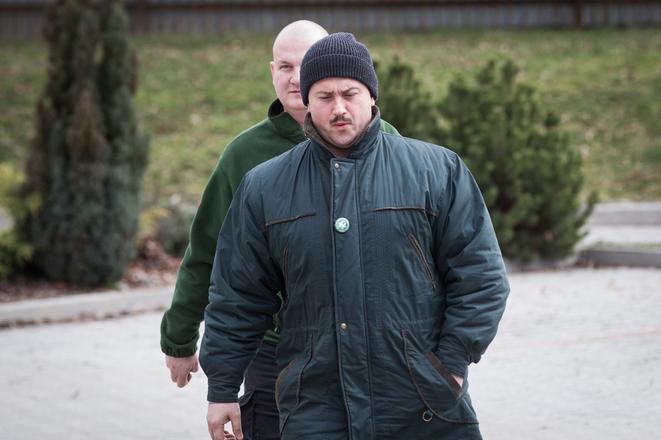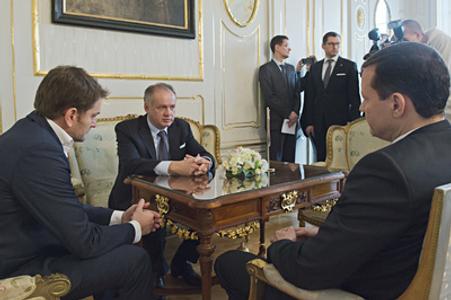The president did not want to explain in detail why he refused to invite Marian Kotleba. He only hinted that “a radical political extremism in uniforms made it to the parliament”, as reported by the Sme daily.
Also other leaders of parliamentary parties, except for Boris Kollár of Sme Rodina (We Are Family), said they would ignore ĽSNS, while Kotleba responded that all parliamentary parties and the president are on one side.
Such behaviour, however, is nothing extraordinary. Former Czech president Václav Havel, for example, did not invite communists to discuss the creation of government, Sme wrote.
The reasons why Kiska is doing this are obvious as the president behaves in compliance with his previous rhetoric, political analyst with the Comenius University in Bratislava Pavol Baboš told Sme.
“He is a representative of the liberal part of voters with strong value principles,” Baboš added.
Analysts, however, differ in their opinion on what impact such behaviour would have. Some say that Kotleba may be depicted as an unwanted and aggrieved leader of a parliamentary party, while others approve the president’s decision.
Political analyst Michal Cirner approves Kiska’s behaviour, saying that there is no reason to negotiate with extremists, as reported by the public-service broadcaster Slovak Radio (SRo).
Though Ivan Chorvát of the Matej Bel University in Banská Bystrica (UMB) says that it is not necessary to meet with extremists, he adds that it depends on the situation. He assumes that the president maybe should have met with Kotleba, especially when he talked to other leaders of parliamentary parties.
“He could thus tell him his opinion on his policy or that his values are inconsistent,” Chorvát said in a talk show broadcast by the Slovak Television (STV).
Political analyst Peter Spáč says that the decision cuts both ways. On one hand, it would be difficult to explain to “standard” politicians why to meet with him at any level. On the other hand, Kotleba is not new in politics and he already serves as governor of the Banská Bystrica Self-Governing Region. The ignorance may only motivate his party’s supporters to vote for it again, he told STV.
Marián Majer, head of the Slovak Institute for Security Policy, lists several impacts the behaviour may have. The party’s popularity may increase and it may become part of the political mainstream as it happened in France. On the other hand, the party may become marginalised as other political subjects will use the same opinions as ĽSNS to appeal to their voters, as reported by Sme.



